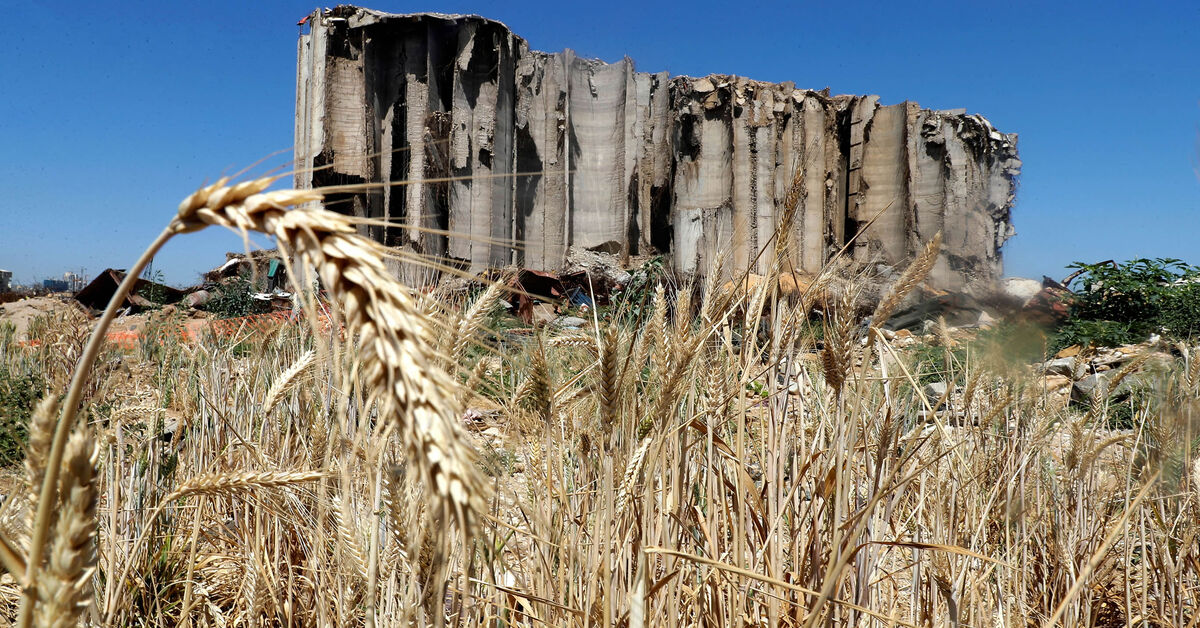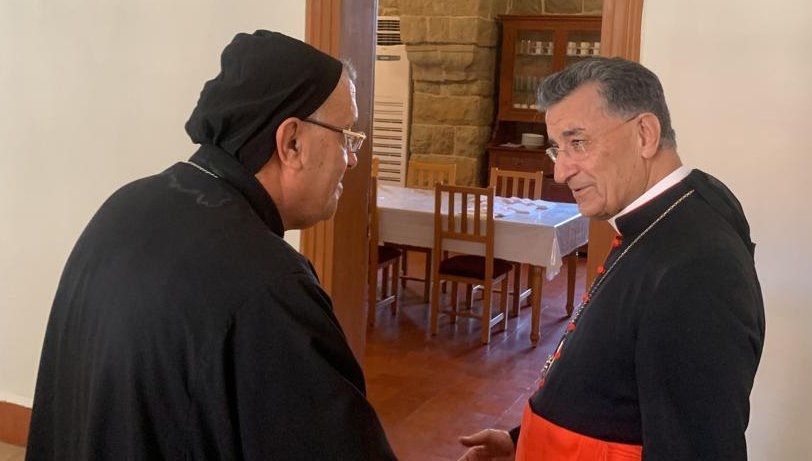
By MAYSAA AJJAN -- arabnews.com -- BEIRUT: With their money stuck in banks, the steep devaluation of the Lebanese lira, the de-facto suspension of Circular 331 and the rising inflation, investors and the Lebanese central bank Banque Du Liban have reached an impasse. “The first five years of Circular 331 initiative were great to the ecosystem, venture capitals included,” Walid Hanna, founder and CEO of Middle East Venture Partners, told Arab News. The circular released by BDL in late 2013 injected nearly $400 million into the entrepreneurial sector to build a Lebanese knowledge economy. “The initiative seamlessly empowered the ecosystem until the financial crisis occurred in 2019. Problems happened when venture capitals powered by the circular received capital calls from their banks and the BDL, either in Lebanese liras or US dollars,” said Hanna. A capital call is a legal right by which a fund manager asks the fund investors or shareholders to pay their pro-rata portion of their fund commitments. “The devaluation of the lira, which has lost more than 90 percent of its value, made the situation complicated and problematic,” added Hanna.
After local banks decided to withhold the savings of individuals and institutions at the onset of the financial crisis in October 2019, most VCs lost a significant amount of money. Still worse, the banks tethered their startups’ capital. Another problem was that the VCs received their capital calls — their due money from investors — in Lebanese dollars or “lollars.” A “lollar” is a US dollar stuck in the Lebanese banking system; in other words, a computer entry with no corresponding tangible currency. The issue of the “lollar” made it impossible for startups to expand their businesses abroad. The fact that BDL required startups and VCs to not spend any “circular 331 money” outside of Lebanon didn’t help matters, explained Hanna. “Therefore, it is a triple problem for the banks, the startups and BDL. This is where the decline started,” Hanna concluded.

Written By Riya Baibhawi -- Lebanese Prime Minister Najib Mikati on Friday warned that the ruin of a massive grain silo risks total collapse due to an ongoing fire at Beirut Port. According to Associated Press, a fire in the structure has been smouldering for the past two weeks due to 800 tons of grains inside fermenting in the hot weather. Notably, blazes extended after flames reached nearly the electrical cable. Hundreds of thousands of firefighters have been deployed at the site which reminds many of 2020’s devastating explosion that ripped the Mediterranean city apart. Experts say part of the structure is leaning and in danger of tipping over. On Friday, PM asked the firefighters and civil defence volunteers to step back for their own safety.
During the 2020 explosion, the grain silo shielded the western part of Beirut, withstanding the brutal force. While the governement experts have warned that trying to put out the fire with water could worsen it due to humidity, the Interior Minister on Thursday ordered firefighters to try to contain the fire with water anyway. Later, the Lebanese army also deployed a helicopter in an attempt to douse the fire with water as well.

Cardinal Bechara Rai, patriarch of Maronite Catholics, greets Maronite Archbishop Moussa El-Hage of Haifa and the Holy Land at Diman, the patriarchal summer residence in north Lebanon July 20, 2022. The Maronite Catholic officials denounced the detention of Archbishop El-Hage on the southern border of Lebanon July 18. (CNS photo/Mychel Akl for Maronite patriarchate)
By: Doreen Abi Raad BEIRUT (CNS) — Maronite Catholic officials in Lebanon have denounced the detention of one of its bishops on the country’s southern border with Israel. The July 18 incident occurred at the border post of Lebanon’s General Security in the village of Ras Naqoura, at which Maronite Archbishop Moussa El-Hage of Haifa and the Holy Land was detained for more than 12 hours. Archbishop El-Hage, also the patriarchal exarch of Jerusalem and Palestine and Jordan, was traveling by road from his episcopal seat in Haifa, Israel, when he was taken into custody by security officers at a crossing that is reserved for religious and the diplomatic corps. Maronite officials said the archbishop was transporting aid, food and cash from his archdiocese intended for needy in Lebanon, amid the country’s catastrophic economic collapse that has pushed nearly 80% of the population into poverty.
Cardinal Bechara Rai, patriarch of Maronite Catholics, convened a meeting July 20 of the permanent council, a patriarchal authority composed of four bishops that meets in “emergency and serious cases.” Archbishop El-Hage was present. In the statement following the meeting at Diman, the patriarchal summer residence in north Lebanon, the Maronite council condemned what it called the “unfortunate and reprehensible attack” on Archbishop El-Hage. The incident, they said, “brought us back to the times of occupation and rulers in the previous centuries, when the invaders and occupiers were trying to undermine the role of the Maronite Church in Lebanon and the East and its brotherhood between religions.”

سجعان قزي
@AzziSejean
ليس لبنانُ بَعدُ مِن الأولويّاتِ الدُوَليّةِ لكنّه حكمًا من الضَرورات. حزبُ الله هو بين الأولويّاتِ للأسبابِ المعروفةِ وليس الدولة. الّذين دَرجْنا على اعتبارِهم أصدقاءَ، يُسعِفون لبنان بالحدِّ الأدنى من المساعداتِ الإنسانيّةِ وبالحدِّ الأقصى من النصائحِ المجانيّةِ ليبقى حيًّا ولو مُضرَّجًا بالأزَمات. هو جَبهةٌ مُعلَنةٌ في حربٍ لم تَندلِع ويَدفعُ ثَمنَها كأنّها مُندَلِعةٌ. "الأصدقاءُ" يَعرِفون أنَّ في لبنان تَقطُنُ جميعُ صراعاتِ الـمِنطقةِ القابلةِ للحلِّ سلميًّا أو المعرَّضةِ للحلِّ عسكريًّا، لكنّهم يَتعاطَوْن معه كأنَّ مشاكلَه داخليّة. "لهم أعينٌ ولا يُبصِرون، ولهم آذانٌ ولا يَسمَعون".
حلُّ قضايا الشرقِ ممكنٌ سياسيًّا لو تَقدَّمت مُكوّناتُه البشريّةُ واحتَكَمت إلى حقوقِ الإنسانِ والقوانينِ الدُوليّة. لكنَّ المعضِلةَ أنَّ أهلَ الشرقِ الكبير يُقبِلون على الخِيارِ العسكريِّ أوّلًا فيما هو الخِيارُ الأخير. الحروبُ تَهرُب من الشرقِ الأوسط، وبعضُ دولِه يركضُ وراءَها. لا مجدَ دونَ الانتصارِ، ويا ليتَهم انتصَروا. منذ فجرِ الفتوحاتِ والعربُ يأنَسُون إلى الحروبِ. قاتلوا قرونًا من دونِ قضيّةٍ وطنيّة، ولـمّا أصبحَت لديهم قضيّةٌ كبرى، القضيّةُ الفِلسطينيّةُ، أوْقفوا القِتالَ وراحَ بعضُهم يُقاتلُ البعضَ الآخَر، وهَرعوا إلى الحلولِ السلميّةِ قبلَ نيلِ حقٍّ أو تسجيلِ انتصار. مُتعِبٌ أن يَنتميَ لبنان إلى هذه العروبةِ المتحوِّرة، وممنوعٌ عليه أن يَستعيدَ العروبةَ الأصيلة.
Khazen History


Historical Feature:
Churches and Monasteries of the Khazen family

St. Anthony of Padua Church in Ballouneh
Mar Abda Church in Bakaatit Kanaan
Saint Michael Church in Bkaatouta
Saint Therese Church in Qolayaat
Saint Simeon Stylites (مار سمعان العامودي) Church In Ajaltoun
Virgin Mary Church (سيدة المعونات) in Sheilé
Assumption of Mary Church in Ballouneh
1 - The sword of the Maronite Prince
2 - LES KHAZEN CONSULS DE FRANCE
3 - LES MARONITES & LES KHAZEN
4 - LES MAAN & LES KHAZEN
5 - ORIGINE DE LA FAMILLE
Population Movements to Keserwan - The Khazens and The Maans
ما جاء عن الثورة في المقاطعة الكسروانية
ثورة أهالي كسروان على المشايخ الخوازنة وأسبابها
Origins of the "Prince of Maronite" Title
Growing diversity: the Khazin sheiks and the clergy in the first decades of the 18th century
Historical Members:
Barbar Beik El Khazen [English]
Patriach Toubia Kaiss El Khazen(Biography & Life Part1 Part2) (Arabic)
Patriach Youssef Dargham El Khazen (Cont'd)
Cheikh Bishara Jafal El Khazen
Patriarch Youssef Raji El Khazen
The Martyrs Cheikh Philippe & Cheikh Farid El Khazen
Cheikh Nawfal El Khazen (Consul De France)
Cheikh Hossun El Khazen (Consul De France)
Cheikh Abou-Nawfal El Khazen (Consul De France)
Cheikh Francis Abee Nader & his son Yousef
Cheikh Abou-Kanso El Khazen (Consul De France)
Cheikh Abou Nader El Khazen
Cheikh Chafic El Khazen
Cheikh Keserwan El Khazen
Cheikh Serhal El Khazen [English]
Cheikh Rafiq El Khazen [English]
Cheikh Hanna El Khazen
Cheikha Arzi El Khazen
Marie El Khazen